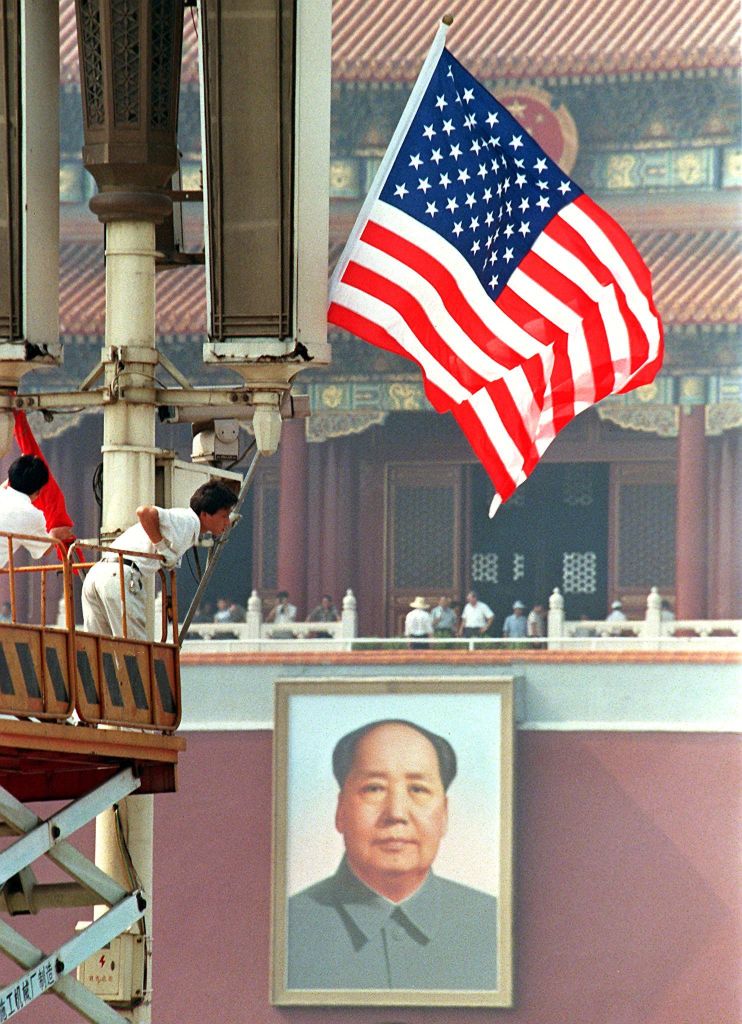China tariff retaliation clobbers U.S. stock markets
- The world's stocks lost more than $1 trillion in value Monday after the U.S. and China increased tariffs on each other's imports.
- The Dow and S&P 500 stock indexes lost 2.4% while the Nasdaq composite lost 3.4%.
- Trade-dependent sectors, including technology and agriculture, showed the biggest losses.
U.S. stocks had their worst day in four months on Monday after a series of escalations in the U.S.-China trade war. The Dow lost 617 points, or almost 2.4%, closing at 25,324. The S&P 500 lost 2.4% while the tech-heavy Nasdaq composite lost 3.4%.
The plunge, piling on an earlier decline in global financial markets, lopped more than $1 trillion off stock markets around the world, according to Bloomberg.
China announced Monday that it would impose tariffs on $60 billion worth of U.S. goods starting June 1. The move is a response to the U.S. on Friday increasing its import tariffs on $200 billion of Chinese goods to 25%, up from 10%. U.S. trade officials on Monday released a list of an additional $300 billion in products the U.S. buys from China that could be subjected to higher tariffs as early as July, covering nearly all American imports from China.
Tech, industrial and agriculture stocks were hardest hit. Deere & Co., the heavy-machinery manufacturer, lost 6.2%, dropping to around $146, while the agriculture giant Archer-Daniels-Midland lost more than 4%, falling to about $40. Hon Hai Precision Industry Co., better known as Foxconn, lost 6.5%, falling to $5.07.
Nvidia fell more than 6%, to about $158. Apple had its biggest drop of the year, falling 5.8% to about $185. Apple has lost almost 12% of its stock market value — a $120 billion loss in shareholder value — since President Trump first tweeted his latest China tariff intentions on May 5.
"The core underlying fear in the eyes of tech investors is around what this move as well as a retaliation move from the Chinese can do to the tech food chain," Dan Ives, managing director of equity research at Wedbush Securities, wrote in a note Monday. Easy trade with China is crucial to the supply chains of tech companies as well as their consumer base. Apple is expected to sell about 20 percent of the iPhones it manufactures in the next year in China, Ives said.
Other Wall Street analysts warned that the tariffs could ding U.S. GDP growth while they push up the cost of numerous household goods.
"[T]he costs of US tariffs have fallen entirely on U.S. businesses and households, with no clear reduction in the prices charged by Chinese exporters," Jan Hatzius, Goldman Sachs' chief economist, wrote Saturday, before China's announcement. He added that the tariffs have also encouraged U.S. producers to raise their prices on products competing with Chinese goods.
Global stock markets dropped earlier in the day. The CAC 40 in Paris dropped 0.5% to 5,298 in midday trading while Germany's DAX gave up 0.7% to 11,970. The FTSE 100 in Britain edged 0.1% lower to 7,194.





